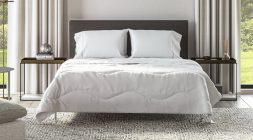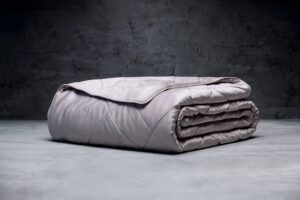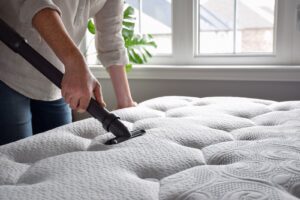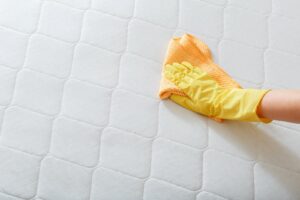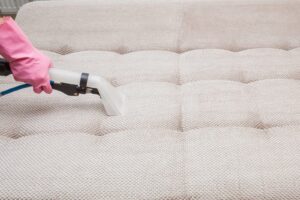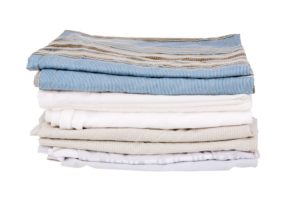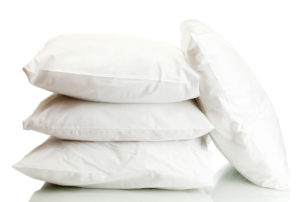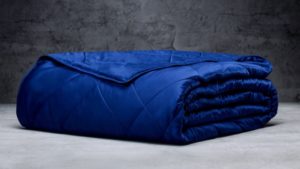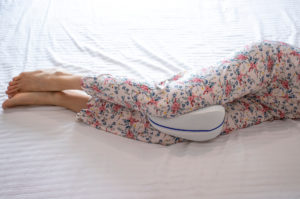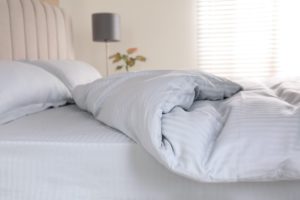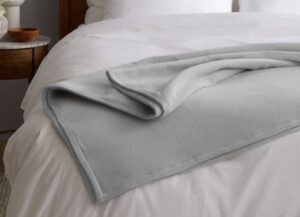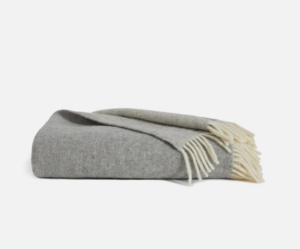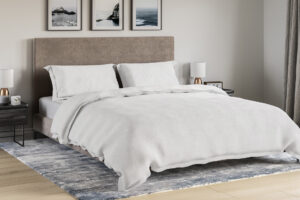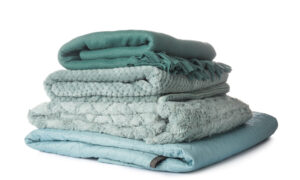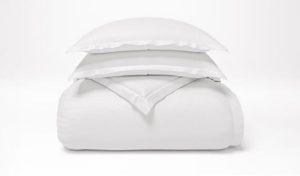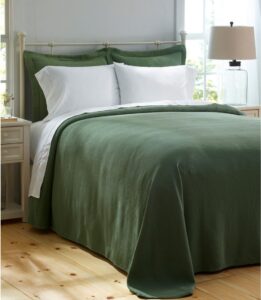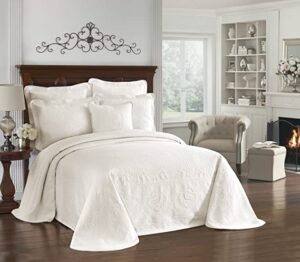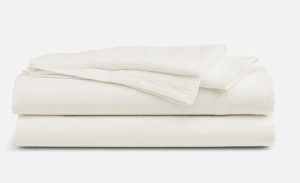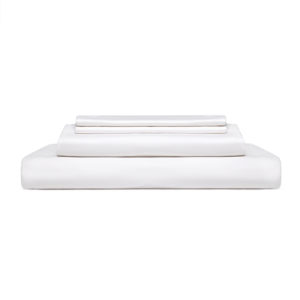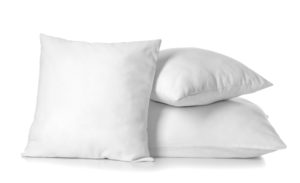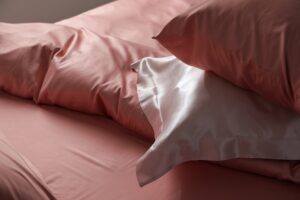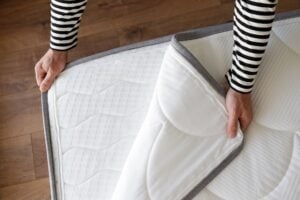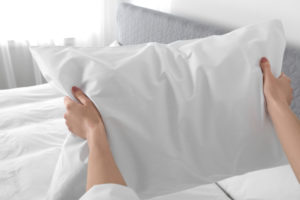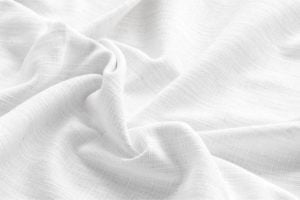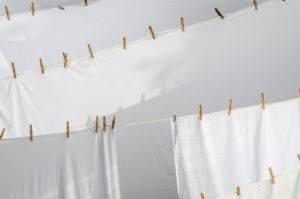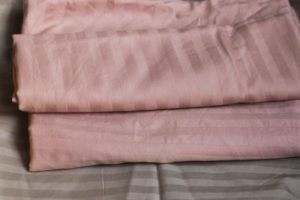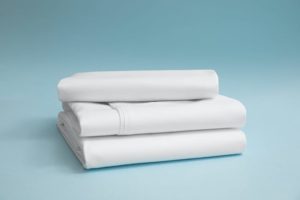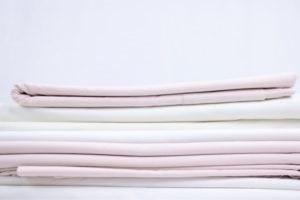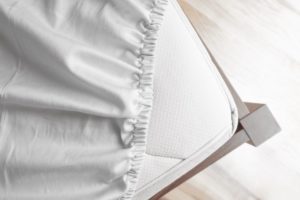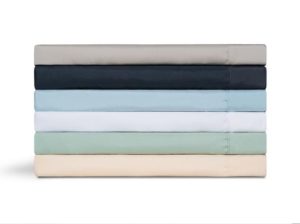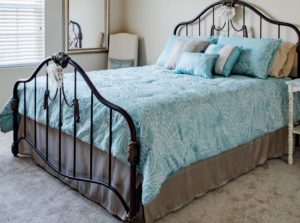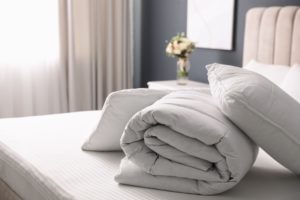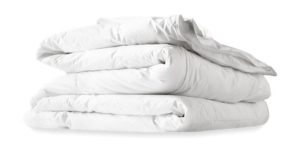Duvet vs. Comforter
The terms “duvet” and “comforter” are sometimes used interchangeably, so it’s only natural that shoppers may be unaware of any differences between the two. But while some may mistakenly label a duvet as a comforter or vice versa, there are some notable differences between standard duvets and comforters. While both provide warmth, they vary in their plushness, care instructions, and more.
As with any product, there are variations between individual manufacturers, so you may find that not all duvets and comforters follow their associated standards. However, these are two separate products, and each carries common potential benefits and drawbacks.
We’ll clear up any confusion between the two by highlighting the factors that make each option distinct.
What is a Duvet?
“Duvet” is the French word for down, reflecting the traditional fill of this bedding item that originated in Europe. Down is a layer of fine feathers that rests under the exterior feathers of geese and ducks. This soft, fluffy material insulates quite well, giving duvets their reputation for coziness. While duvets initially used down fill, many now use feathers, down alternative, cotton, wool, and/or silk to suit different needs and preferences.
A duvet insert typically consists of the fill encased in a simple cotton, polyester, or cotton/polyester blend shell. While some owners may choose to use the insert alone, duvet inserts are designed to be paired with a duvet cover for easier cleaning and more style options. Cover materials may include cotton, flannel, silk, linen, and even faux fur. These covers typically fasten to the insert with ties, buttons, or a zipper to prevent shifting.
While you can find some washable duvet inserts, many have special care instructions to prevent damage. Duvet covers, on the other hand, are typically machine washable.
Duvet inserts vary in price points depending on their quality and materials. Covers can also add to the overall price, especially if you want several options to change up the look and feel of your bedding. If you decide a duvet is right for you, check out our guide to the best duvet covers to find a protective option that’s comfortable and stylish.
Pros & Cons
Duvet
| Pros | Cons |
|---|---|
| Cozy feel | Changing covers can be difficult |
| Changeable look | Insert may come unfastened and shift |
| Easy cleaning of duvet covers | You may have to purchase a cover separately |
What is a Comforter?
Comforters are constructed to be used as-is with no need for an additional cover since one is already built in. While duvets have their roots in Europe, comforters are their American equivalent.
Many of the same materials found in duvets can also appear in comforters. They frequently have cotton, polyester, or cotton/polyester blend covers with down, feather, down alternative, cotton, wool, or silk fill. Comforters often aren’t as warm or lofty as duvets, so some owners may prefer to pair them with an additional blanket during colder months.
There are many style options, colors, patterns, and textures on the market. Bedding sets also regularly include a comforter for shoppers looking to achieve a coordinated look with little effort.
Care instructions vary between comforters based on their materials. If a comforter is machine washable, fitting it into your home washer may be somewhat difficult. To reduce the need for frequent washing, most comforter owners use a top sheet to act as a barrier. Some comforters can also be paired with duvet covers for additional protection.
Comforters come in a wide range of price points that reflect their materials. Bedding sets that contain comforters are often an affordable solution, while luxury-minded sleepers can find plenty of options that use high-end materials, like down and silk.
Pros & Cons
Comforter
| Pros | Cons |
|---|---|
| Plenty of style options | May go flat |
| One-piece solution | Harder to change styles |
| Available in some coordinated sets | May be difficult to clean |
| Could be used with a duvet cover |
Duvet vs. Comforter
Duvets and comforters can both enhance your comfort, especially when temperatures drop. While it’s easy to confuse the two, distinct differences may make either one a better option for you based on your needs, preferences, and sleep style.
One of the key differentiators between duvets and comforters is the use of covers. While duvets are typically paired with covers, comforters are not. This can affect both the durability and ease of washing. A duvet cover adds a layer of protection, so some damage that may render a comforter unusable might just require a new cover for those using a duvet. Duvet covers are also usually machine washable, making it easier to refresh the surface.
Both duvets and comforters vary in price based on their materials. Comforters may be slightly more affordable upfront since you won’t need to purchase a cover and could save money with a bedding bundle. In the long run, duvets could ultimately be the better value since a duvet cover protects the insert and a style change only requires the purchase of a new cover.
The range of design options available for duvet covers can make duvets more versatile in appearance. However, since they are typically warmer than comforters, they might not be ideal for year-round use. Sleepers may use a comforter year-round and pair it with a blanket in winter, but the appearance is consistent, providing less design versatility.
| Category | Duvet | Comforter |
|---|---|---|
| Durability | A duvet’s durability will depend largely on its construction and materials. Duvets with high-quality fill encased in a shell that’s at least 300-thread count should hold up well over time if cared for properly. However, they may require occasional fluffing. | The durability of a comforter will vary based on its materials and how you care for it. Since sleepers usually use comforters without a duvet cover, they could get stained or dirty, limiting their lifespan. Frequent laundering could also cause them to go flat. However, if covered, high-quality comforters should last about as long as an equivalent duvet. |
| Warmth & Loft | Duvets tend to be thicker, heavier, and warmer than comforters. The loft will be affected by the fill materials and how frequently you fluff it, while both the fill and cover materials can influence the warmth. | Comforters are usually thinner than duvets, so they’re often not as warm. This may make them more comfortable for year-round use, but owners may need an extra blanket for warmth during the winter. |
| Cost | Shoppers can find a duvet to fit into most budgets if they’re open to different fill materials, though traditional down duvets are often expensive. Covers can also add to the expense. | Like duvets, comforters come in a wide range of price-points based on their materials. They’re often most affordable when bundled with other bedding. |
| Style | Since duvet covers can be swapped out without replacing the whole duvet, owners have a huge range of style options. Duvet covers come in different patterns, colors, and fabrics, making it easy to adjust the look of your bed by season or even based on your mood. | Comforters are crafted for sleepers to use without a duvet cover, so they come in a broad spectrum of colors and patterns to suit different aesthetics. |
| Cleaning & Care | Cleaning and care instructions vary between duvets based on their materials and construction, and you should always follow the care instructions that come with your duvet to prevent damage. Some duvets are washable, but many require special care, like dry cleaning or spot cleaning. Duvet covers are frequently machine washable, however, so they can help shield the duvet insert to reduce the need for laundering | A comforter’s care instructions will depend on its materials, so you should follow manufacturer suggestions to preserve the quality of your item. Some comforters are machine washable, though doing so at home may be difficult because they are bulky. If you are concerned with how to keep your comforter clean, you might pair it with a washable duvet cover. |
Which Should You Choose?
Both duvets and comforters are excellent options to help keep you warm on chilly nights and give your bed a more finished look. Ultimately, either one may be right for you depending on what you like.
People who don’t need as much added warmth and those who would rather avoid attaching a cover might favor a comforter, while a duvet could be ideal for individuals looking for extra thickness and more style options. It may be simpler to launder a duvet cover than wrestle a comforter into your washer. However, since care instructions vary between individual duvets, duvet covers, and comforters, either a duvet or a comforter could be easier to clean overall.
You may prefer duvets if:
- You like a plusher feel
- You want to change the look of your bed more often
- You’d rather not use a top sheet
You may prefer comforters if:
- You don’t want to deal with attaching a cover
- You’d rather buy just one piece
- You buy your bedding as a set

Still have questions? Ask our community!
Join our Sleep Care Community — a trusted hub of sleep health professionals, product specialists, and people just like you. Whether you need expert sleep advice for your insomnia or you’re searching for the perfect mattress, we’ve got you covered. Get personalized guidance from the experts who know sleep best.

